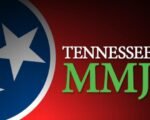The debate over the establishment of a recreational marijuana market in Washington, D.C., remains a contentious issue. Despite the growing acceptance of marijuana legalization across the United States, D.C. faces unique challenges due to federal oversight. Recently, a congressional committee reinstated a provision that prevents the D.C. government from setting up a regulated recreational marijuana market. This decision has reignited discussions among lawmakers, residents, and stakeholders about the future of marijuana regulation in the nation’s capital. This article delves into the details of the ongoing debate, the arguments from both sides, and the potential implications for D.C.

Congressional Intervention and Local Frustration
The reinstatement of the “Harris Rider” by a congressional committee has been a significant setback for D.C.’s efforts to establish a recreational marijuana market. Named after Maryland Congressman Andy Harris, the rider prohibits the D.C. government from using local funds to regulate or tax marijuana sales. This provision has been a point of contention for years, as it effectively blocks the city from creating a legal framework for recreational marijuana.
D.C. Council Chair Phil Mendelson has expressed frustration over the continued federal interference. He argues that the rider undermines the city’s ability to regulate marijuana effectively, leading to a thriving black market that threatens the viability of legal medical marijuana dispensaries. Mendelson’s concerns highlight the broader issue of D.C.’s limited autonomy and the challenges of navigating federal restrictions.
On the other hand, Congressman Harris defends the rider, arguing that it prevents the spread of an addictive substance and protects public health. He contends that the D.C. government is primarily motivated by the potential tax revenue from marijuana sales, rather than the well-being of its residents. This clash of perspectives underscores the complexity of the issue and the difficulty of finding common ground.
Arguments for and Against Legalization
Proponents of establishing a recreational marijuana market in D.C. argue that legalization would bring numerous benefits. One of the primary arguments is that it would generate significant tax revenue for the city, which could be used to fund public services and infrastructure projects. Additionally, legalization would allow for better regulation and quality control of marijuana products, ensuring that consumers have access to safe and tested products.
Supporters also believe that a regulated market would reduce the influence of the black market and associated criminal activities. By providing a legal avenue for marijuana sales, the city could undermine illegal operations and improve public safety. Furthermore, legalization could create jobs and stimulate economic growth, providing new opportunities for local businesses and entrepreneurs.
Opponents, however, raise concerns about the potential negative impacts of legalization. They argue that making marijuana more widely available could lead to increased use, particularly among young people. There are also worries about the potential health risks associated with marijuana consumption, including addiction and mental health issues. Critics contend that the city should focus on addressing these concerns before moving forward with legalization.
Potential Implications for D.C.
The ongoing debate over recreational marijuana in D.C. has significant implications for the city’s future. If the Harris Rider remains in place, the city will continue to face challenges in regulating marijuana effectively. This could perpetuate the black market and undermine efforts to ensure the safety and quality of marijuana products. The lack of a legal framework also means that the city misses out on potential tax revenue that could be used to support public services.
Conversely, if the rider is eventually removed, D.C. could move forward with establishing a regulated recreational marijuana market. This would require careful planning and implementation to address the concerns of both supporters and opponents. The city would need to develop robust regulations to ensure product safety, prevent underage use, and address public health concerns. Successful implementation could serve as a model for other jurisdictions facing similar challenges.
In conclusion, the debate over the establishment of a recreational marijuana market in D.C. is a complex and multifaceted issue. The reinstatement of the Harris Rider has reignited discussions about the city’s autonomy, public health, and economic potential. As the debate continues, it is crucial for stakeholders to consider the diverse perspectives and work towards a solution that balances the benefits and risks of legalization.
Maria Garcia is an award-winning author who excels in creating engaging cannabis-centric articles that captivate audiences. Her versatile writing style allows her to cover a wide range of topics within the cannabis space, from advocacy and social justice to product reviews and lifestyle features. Maria’s dedication to promoting education and awareness about cannabis shines through in her thoughtfully curated content that resonates with both seasoned enthusiasts and newcomers alike.








